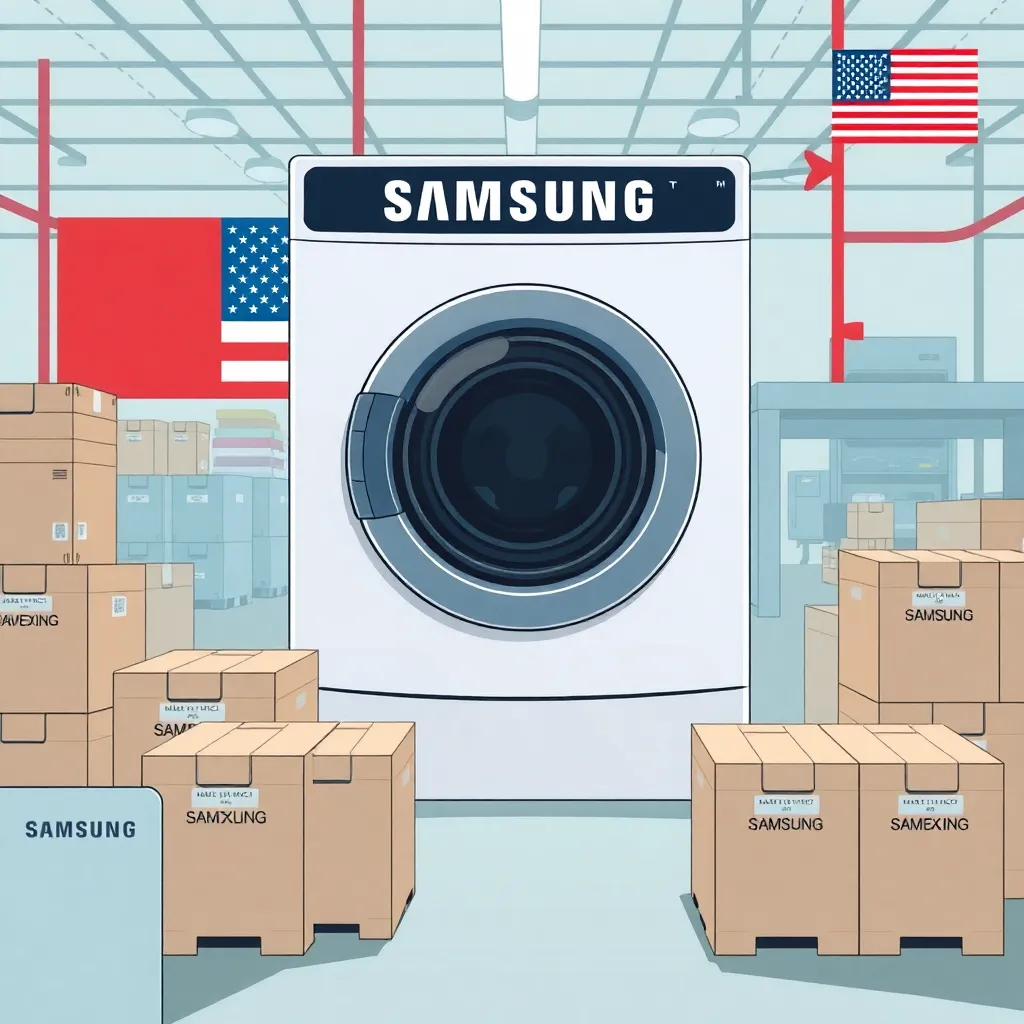
In a significant move that could potentially reshape the global appliance manufacturing landscape, Samsung is weighing the option of relocating its dryer production from Mexico to the United States. This consideration comes as a direct response to the tariffs imposed by the Trump administration, aimed at encouraging companies to bring their operations back to American soil.
The tariffs, which were introduced as part of President Trump’s broader strategy to revitalize US manufacturing and reduce reliance on imports, have been a subject of both praise and criticism. While some argue that these measures are necessary to protect American jobs and stimulate economic growth, others contend that they could lead to higher consumer prices and unintended trade consequences.
Samsung’s decision to consider relocating its dryer production underscores the complex dynamics at play in the global economy. The company, which is one of the world’s leading appliance makers, currently operates a significant manufacturing facility in Mexico. This facility serves as a critical hub for the production of various Samsung products, including dryers, which are then shipped to markets across North America.
By contemplating a move to the US, Samsung is likely seeking to mitigate the impact of tariffs on its operations. The company may be hoping to take advantage of the Trump administration’s policies, which are designed to incentivize companies to invest in American manufacturing and create jobs for US workers.
However, relocating production from Mexico to the US would not be without its challenges. Samsung would need to navigate the complexities of establishing a new manufacturing facility, which would require significant investments in infrastructure, equipment, and personnel. Additionally, the company would need to ensure that its US-based operations are competitive and efficient, in order to maintain its market share and profitability.
The potential relocation of Samsung’s dryer production also raises broader questions about the future of global trade and manufacturing. As companies like Samsung reassess their operations in response to shifting trade policies, it remains to be seen how these decisions will impact the global economy and the lives of workers around the world.
Ultimately, Samsung’s decision on whether to relocate its dryer production to the US will depend on a variety of factors, including the company’s strategic priorities, market conditions, and the evolving trade landscape. As the global economy continues to evolve, one thing is certain: the choices made by major companies like Samsung will have far-reaching implications for workers, consumers, and the broader economy.






